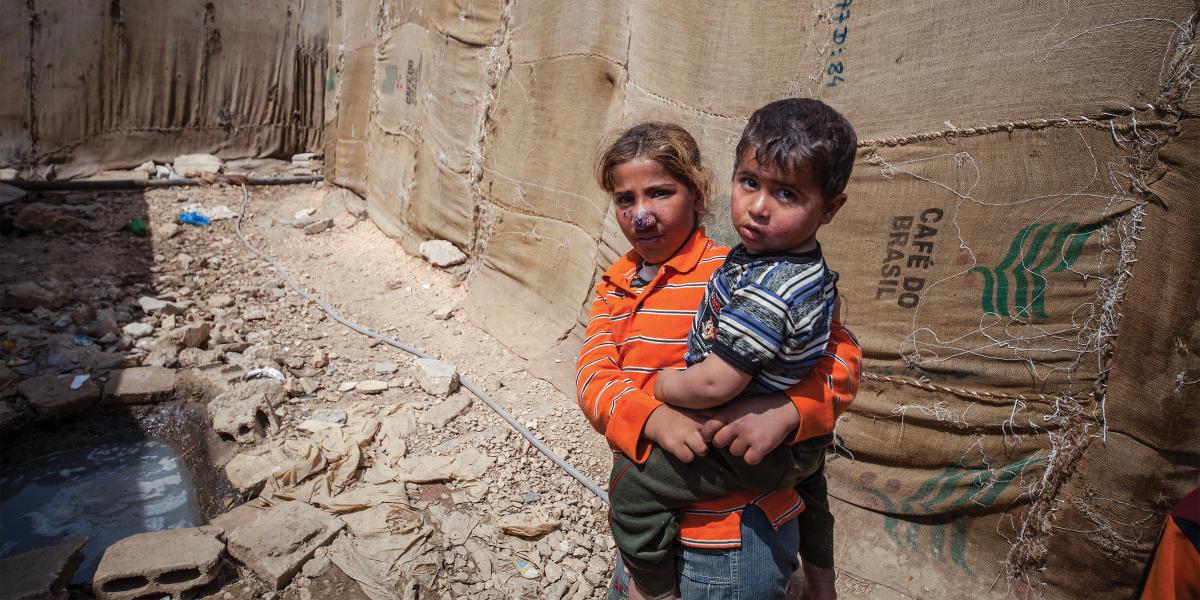Syrian Doctor Sees Potential Health Care Solutions for Refugees in Lebanon
A Syrian physician learns public health skills to someday take back home.
For the 5.6 million people who have fled the still-raging civil war in Syria, essential health care can be hard to come by. At least half of these refugees lack basic care for infectious diseases including tuberculosis and hepatitis, as well as noncommunicable diseases like cardiovascular disease, chronic respiratory distress and diabetes, says Mohammad Darwish, MD.
Darwish is one of two Syrian scholarship recipients enrolled in the MPH program at the Bloomberg School in collaboration with the Johns Hopkins Center for Humanitarian Health. He is now researching ways to improve Syrian refugees’ access to health care, focusing specifically on Lebanon, where the UN says more than 1 million Syrians live.
Darwish knows their plight well: He worked as a physician with refugees in 2016 and 2017. “I worked in Lebanon in refugee camps with Red Cross/Red Crescent, and I was in touch with Syrians’ daily sufferings,” Darwish says.
Few of the refugees can afford the expensive—and mostly private—medical care, particularly for chronic conditions, Darwish says. The UN Refugee Agency pays only 75 percent of the costs for specialists and nothing for those who treat catastrophic illnesses like cancer and kidney disease, leaving refugees to pay out-of-pocket costs themselves, rely on NGOs or go without care that could prevent the progression of disease and even save their lives.
Darwish says integrating Syrian refugees into the Lebanese health care system could help. Because that change could mean an infusion of funds to the health system from the UN, NGOs and other sources, it would also improve care for Lebanese nationals.
Eventually, Darwish wants to help rebuild his own country’s health care system. “I hope to return to a peaceful Syria to do that with my newfound knowledge,” he says.
The Center for Humanitarian Health is housed in the Department of International Health.
